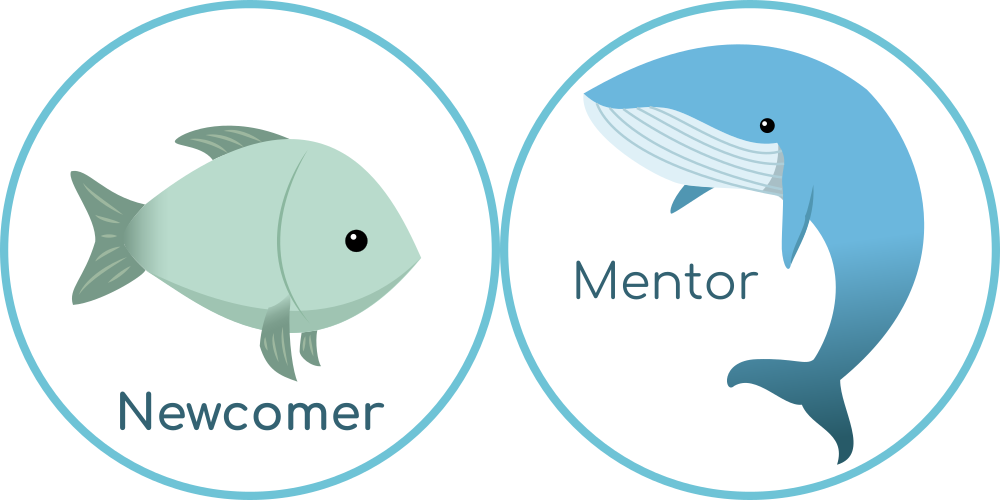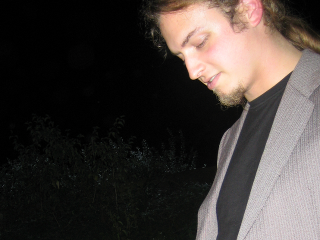
Newcomer and Mentor stickers designed by GCI 2017 participant Ashley Zhang, CC BY-SA 4.0.
Google Code-in (GCI) is an annual seven week long contest for 14–17-year-old students exploring free and open source software projects. Organizations, such as the Wikimedia community, offer small tasks in the areas of code, documentation, outreach, research, and design. Students who complete tasks receive a digital certificate and a shirt from Google. The top students in every participating organization win a visit of Google’s headquarters. Students can directly experience how large online projects are organized, collaborate with humans across the planet, and the students’ accepted work is made available to millions of worldwide users.
For the sixth time, Wikimedia was one of 27 participating organizations which offered tasks mentored by community members.
In late 2018, 199 students worked on 765 Wikimedia tasks with the help of 39 mentors. To list only some students’ achievements and show the variety of projects, areas, and programming languages in the Wikimedia community:
- VisualEditor now allows editing a table cell by pressing F2; Several fixes for the “Page Options” dialog; Leading spaces from the “format” field in TemplateData user interface are now stripped
- Documentation written how to use our Gerrit test instance
- More unit tests in MediaWiki’s Thanks and StructuredDiscussions extensions
- Code coverage: Several MediaWiki extensions got missing @covers tags added
- MediaWiki web upgrade process now handles errors in purgeCache correctly
- Improved the workflow in MediaWiki web installer if an error occurs
- MediaWiki Action API now returns HTTP 405 error code when an unsupported http method is used; Included namespace information on the action=info page
- The Wikimedia Hashtags tool on Toolforge now has a JSON endpoint
- The Wikinity tool on Toolforge now has a coordinate format converter
- Pywikibot now removes disambiguation brackets in labels to create new items for articles in Wikidata; unused code removed in some places
- Several fixes and improvements for the JSDoc WMF theme
- Several MW extensions now display their licenses on Special:Version
- Several students took incremental tasks to learn Lua and templates
- Sticker designs, such as racconicorns or “Personal Space Needed”
- Constructed SQL queries in Quarry to get statistics about Wikipedia
- Dozens of fixes & new features for WMCZ‘s expense tracking app “Tracker”
- In the user interface of the Wikidata Query Service, the placeholder now updates the language dynamically and code examples were improved
- Added support for the Eastern Pwo language (kjp) to MediaWiki’s Names.php
- Mobile frontend/Minerva skin: The “Edit” button is now disabled for anonymous editors; Control-clicking on an image now opens the image in a new tab; Moved client side code inside initEditLink to server; Category overlay in MediaWiki’s MobileFrontend extension now refreshes after a category was added to a page
- Some Wikimedia site configuration changes were prepared (and deployed) by students
- WikiEduDashboard: Now shows file urls and author in ‘Recent Uploads’ on user profile pages; `no-undef` eslint rule enabled; users now get informed when a course is not listed in any campaigns
- FormWizard extension: Extension group on special page modified and further small fixes
- Modified the Newsletter ‘issue announce’ summary textbox
- Removed unchecked calls to Title::getTalkPage in MediaWiki extensions
- Replaced usage of jshint/jscs with eslint in numerous MediaWiki extensions
- Some guided tours created for MediaWiki’s StructuredDiscussions extension
- Some fixes for syntax errors in translated messages in MediaWiki and extensions
- Images (corresponding to an emoji) added to Wikimedia Commons Twitter Bot code
- Musical partitions transcribed for various Wikipedia articles.
…and many many more.
Some students have also written about their experience. Google also posted a summary with statistics.
We would like to congratulate our winners Nathan and Shreyas Minocha, our finalists arcaynia, Jan Rosa, takidelfin and Zoran Dori, and all contributors on their many contributions! We hope to see you around! We would also like to thank all our mentors for their commitment to be available also on weekends and holidays, for coming up with task ideas, working together, quickly reviewing contributions, and for providing feedback what we could improve next time.
Thanks to everybody on IRC, Gerrit, Phabricator, mailing lists, Github, Telegram for their friendliness, patience, support and help.
Wikimedia always welcomes contributions to improve free and open knowledge. Find out how you can contribute.


